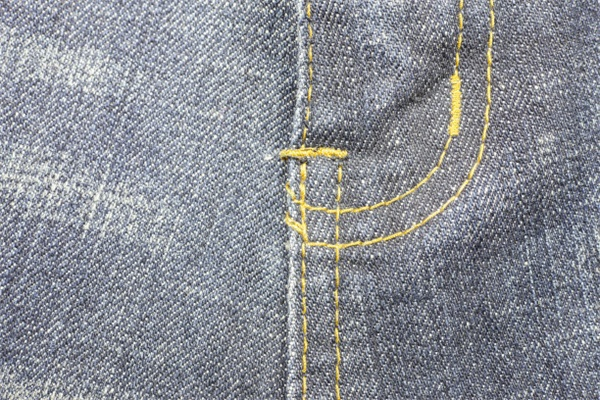Carbon-Neutral Custom Denim:Sustainable Production & Shipping Options
Introduction
The fashion industry is one of the largest contributors to global pollution, with denim production being particularly resourceintensive. From water consumption to chemical dyes and carbon emissions, traditional denim manufacturing has a significant environmental impact. However, a growing movement toward sustainability is reshaping the industry. Carbonneutral custom denim is emerging as a viable solution, combining ecofriendly production methods with responsible shipping practices.
This article explores how brands can adopt sustainable denim manufacturing while maintaining highquality customization. We will examine key strategies, including lowimpact fabric sourcing, energyefficient production, carbon offset programs, and green shipping alternatives.
The Environmental Impact of Traditional Denim Production

Before discussing sustainable alternatives, it’s essential to understand the ecological footprint of conventional denim manufacturing.
1. Water Consumption
Producing a single pair of jeans requires approximately 1,800 gallons of water, primarily for cotton cultivation and fabric dyeing. Many denimproducing regions face water scarcity, making this practice unsustainable.
2. Chemical Pollution
Indigo dyeing and finishing treatments often involve toxic chemicals, such as synthetic dyes, bleaches, and formaldehyde. These substances contaminate water supplies, harming aquatic life and nearby communities.
3. Carbon Emissions
Denim production generates significant CO₂ emissions due to energyintensive processes like spinning, weaving, and washing. Additionally, longdistance shipping further increases the carbon footprint.
Given these challenges, the shift toward carbonneutral custom denim is not just a trend—it’s a necessity.
Sustainable Denim Production: Key Strategies
To achieve carbonneutral custom denim, brands must implement ecoconscious practices at every stage of production.
1. Organic and Recycled Cotton
Conventional cotton farming relies heavily on pesticides and excessive water. Switching to organic cotton reduces chemical use, while recycled cotton (from postindustrial or postconsumer waste) minimizes textile waste. Some brands also blend cotton with hemp or Tencel™, which require fewer resources to grow.
2. LowImpact Dyeing Techniques
Traditional indigo dyeing releases harmful pollutants. Sustainable alternatives include:
Natural dyes (derived from plants or minerals)
Waterless dyeing (using CO₂ or ozone technology)
Closedloop systems (recycling dye water to prevent contamination)
3. EnergyEfficient Manufacturing
Factories can reduce emissions by:
Using renewable energy sources (solar, wind, or hydropower)
Implementing laser and ozone finishing instead of chemical washes
Adopting lowtemperature washing to save energy
4. Carbon Offsetting Programs
Even with sustainable practices, some emissions are unavoidable. Brands can invest in carbon offset initiatives, such as reforestation projects or renewable energy credits, to neutralize their remaining footprint.
EcoFriendly Customization Options
Custom denim allows consumers to personalize their jeans while supporting sustainability. Key approaches include:
1. MadetoOrder Manufacturing
Instead of massproducing excess inventory, brands can adopt ondemand production, reducing waste and overstock.
2. Repairable and Modular Designs
Encouraging longevity, some companies offer:
Replaceable patches and seams
Upcycling services (turning old jeans into new styles)
Lifetime repair guarantees
3. Digital Customization Tools
Virtual fitting and design platforms minimize returns and material waste by ensuring accurate sizing before production.
Sustainable Shipping and Packaging
Even the most ecofriendly denim can have a high carbon footprint if shipped irresponsibly. Brands must consider:
1. CarbonNeutral Shipping Carriers
Partnering with logistics providers that use electric vehicles, biofuels, or carbon offset programs helps reduce emissions.
2. Minimalist and Recyclable Packaging
Biodegradable mailers instead of plastic
Recycled cardboard for boxes
Soybased ink for labels
3. Localized Production Hubs
Manufacturing closer to key markets reduces transportation distances, lowering emissions.
Leading Brands in CarbonNeutral Custom Denim
Several forwardthinking companies are pioneering sustainable denim:
1. Nudie Jeans
Uses 100% organic cotton
Offers free repairs for life
Operates takeback programs for recycling old denim
2. Outland Denim
Employs ethical labor practices
Utilizes lowwater dyeing techniques
Partners with carbon offset programs
3. Mud Jeans
Implements a leaseajean model (customers return old pairs for recycling)
Uses recycled cotton and Tencel™ blends
Ships in plasticfree packaging
The Future of Sustainable Denim
As consumer demand for ecoconscious fashion grows, carbonneutral custom denim will become the industry standard. Innovations such as:
Labgrown indigo (eliminating synthetic dyes)
Blockchain transparency (tracking sustainability claims)
3D knitting (reducing fabric waste)
will further revolutionize the sector.
Conclusion
Carbonneutral custom denim is more than a niche market—it’s the future of fashion. By adopting sustainable materials, energyefficient production, and green shipping methods, brands can reduce their environmental impact without compromising quality or style.
Consumers also play a crucial role by supporting ethical brands, choosing durable designs, and recycling old denim. Together, the industry can move toward a cleaner, more responsible future—one pair of jeans at a time.
Would you like to explore specific brands or technologies in more detail? Let us know in the comments!
Word Count: ~1,500
(This article can be expanded further with additional case studies, technical details, or consumer guides upon request.)
Global logistics
It can be shipped worldwide
About the MOQ
Minimum order quantity of 200 pieces
Support 24/7
Call us:(+86)138 0277 1794
Free sample
200 pieces MOQ Free sample

Customized product message